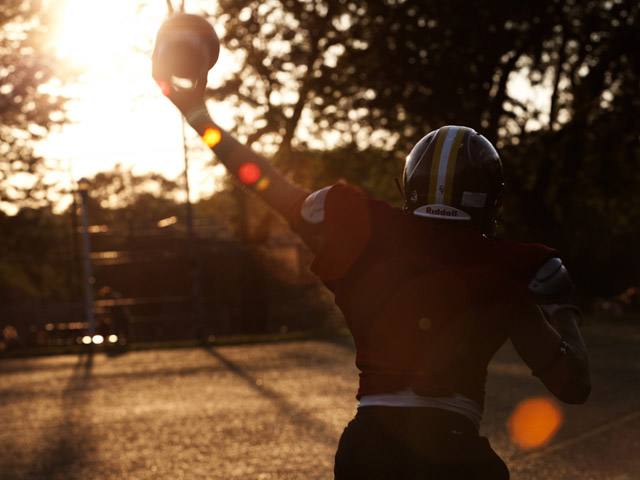When Dimitri Manolopoulos was 15, he expressed his intention to drop out to his football coach. The next week, his coach, Earl De La Perralle, took Manolopoulos on a drive to a Montreal factory where he told the student that, if he chose, there was a job awaiting him inside. Seeing potential in the young man, however, Earl De La Peralle also highlighted the path that Manolopoulos could follow through continued education. The next day, Manolopoulos returned to class. Today, he is a Master’s graduate, National Bank employee, and a member of the Board of Directors for the organization that transformed his life: Sun Youth.
Sun Youth began in 1954, when nine-year-old Earl De La Peralle and his 13-year-old friend Sid Stevens created “The Clark Street Sun.” The Sun was a handwritten one-page newspaper that could be rented—as it started with only two copies—for two cents per copy, to raise money for their hockey team’s new uniforms. The pair went door-to-door distributing their paper. At the end of the Sun’s first year, they had raised $500 —the equivalent of 25,000 reads.
Since then, the organization has grown, and youth sports became central to its objective, as Sun Youth now provides a path to mentorship and promotes continued education.
Sun Youth’s work has led to countless success stories. According to its website, the organization serves as a way to instill in young students the importance of school. It encourages academic excellence by restricting athletic activities to non-school hours and providing student athletes with a study hall—where they can do homework with an internet connection and the guidance of tutors and retired teachers. The Sun Youth Wall of Fame highlights over 150 students who have used Sun Youth sport to help achieve post-secondary education.
In 2019, Sun Youth will celebrate its 65th anniversary. In those years, the organization has come a long way, from two copies of a community newspaper to an NGO that works closely with municipal government and law enforcement. The organization provides athletic opportunities and an array of emergency services—including medication, food assistance, and school supplies distribution—that ensure that basic needs are met for disadvantaged families in the Greater Montreal area. Additionally Sun Youth crime prevention services operate in the community through bike patrols and youth mentorship programs. Earl De La Perralle and Stevens—now 73 and 77—remain a part of that work everyday.
“They were immigrant kids, […] they didn’t have a lot,” Kara De La Perralle, Sun Youth’s Assistant Director of Sports and Recreation and Earl De La Perralle’s daughter, said. “[They asked themselves], ’what’s needed in the community? What can we do to help out?’”
Like Earl De La Perralle and Stevens, many of the staff and volunteers remain involved for a very long time. Coaches for Sun Youth’s two competitive sports—basketball and football—are often former Sun Youth participants themselves, so it’s easy for the participants to find a mentor with whom they can connect, due to their shared experiences.
“Kids look to their coaches for help, and for us it’s about making sure they get every opportunity they can in education to move forward and better themselves,” Kara De La Perralle said.
Sun Youth also offers an established introductory program for kids five to 11 to develop their hockey skills, and is also working on similar programs for soccer and baseball. As it expands to other sports, accessibility remains a central objective.
“We will never not take a child because [of a lack of] funds,” Kara De La Perralle said. “It’s about making sure that anyone who wants to, participates.”
Sun Youth’s objectives are twofold: To alleviate poverty and prevent exclusion. With sport as a vehicle, Sun Youth continues to push toward these goals.
“It’s about the next generation, about helping kids further themselves, [and] sport is a little piece to [that] bigger puzzle,” De La Perralle said. “With all the services we offer, we impact all communities.”









